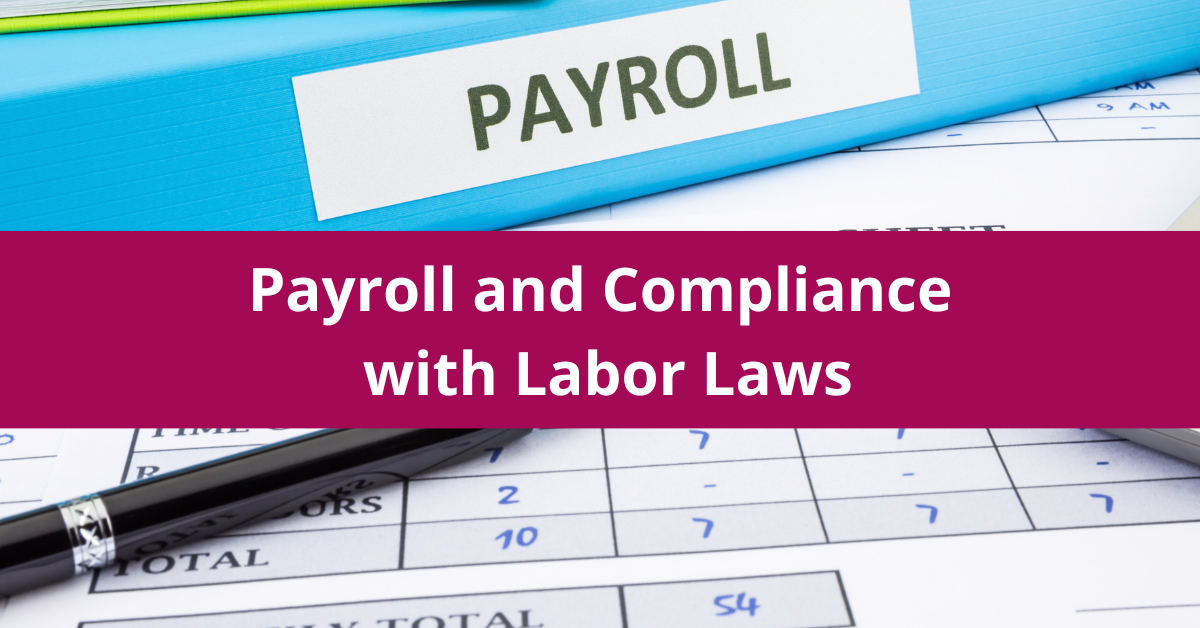Payroll and Compliance with Labor Laws
It’s a given fact – payroll processing is a complex task!
To start, you must compute the employee’s total earnings, including overtime and deduction for tardiness. Moreover, you also have to deduct the estimated withholding taxes as well as the mandatory government contributions.
Then, there are annual tasks, too. There’s the computation of employees’ withholding tax and 13th Month Pay and filing of the employee’s Income Tax Return to BIR.
There is much to consider when processing your employees’ payroll.
Thus, here are the five (5) primary considerations when processing your employee’s payroll:
1. Semi-monthly Payroll Cycle
Companies in the Philippines are mandated to adopt a twice-per-month payroll period, usually paid out on the 15th and 30th of the month. Other industries opt to give their payroll on the 5th and 20th of each month.
Companies should pay the employees twice a month in the case of contractual employees with whom the wage payment is not agreed upon, and completion of the tasks extends beyond a fortnight. Moreover, the company should make the final payment within two weeks after the employee completes the job.
Aside from the regular salary, companies should pay for overtime if an employee works beyond eight hours per day and the additional work hours duly authorized by the company.
2. Withholding Tax: Computation and Annual Filing to BIR
For every payroll cycle, companies are required by law to deduct and withhold a certain amount from the employee’s payroll before it is disbursed to the employee.
The company must remit the total amount withheld from all employees during the month to the BIR the following month.
Aside from the monthly BIR obligation, the employer must also submit an annual tax return confirming the total tax withheld from the employees during the previous year.
3. Mandatory Government Contributions/Deductions
In addition to withholding tax on employees’ compensation, employers must deduct employees’ contributions to social security, health insurance, and provident fund.
There are three major government-controlled institutions that employees are required to contribute:
- Social Security System (SSS) for retirement fund;
- Philippine Health Insurance Corporation (PHIC) for reimbursement of the employee’s and dependents’ medical expenses;
- The Pag-IBIG Fund or the Home Development Mutual Fund (HDMF) for housing and other loan products, which members may avail.
4. 13th-Month Pay
All private-sector “rank-and-file” employees are eligible for the 13th-month pay benefit as long as they’ve worked for at least one month during the calendar year. This means that you get to enjoy an additional one-month salary each year if you work with the same company for the entire year.
Employees who have not worked the entire year but have worked for at least a month should be given extra pay on a pro-rated basis. 13th-month pay is usually paid out to the employees before December 24.
5. Final Pay for Resigned Employees
The labor law is particular regarding the computation of the last payroll and the delivery of the final payment to the employees terminating their employment.
The employee’s final payment should be processed within 30 days from the employee’s last day of work. The computation of the final payment must include:
- The employee’s regular salary.
- A pro-rated 13th Month Pay
- Other compensation or benefits such as unused leave and other de-minimis benefits.
Grow your business with DJKA Business Services Inc.
If payroll processing and government compliance are part of your concerns, then perhaps outsourcing may be a good option for you.
We at DJKA Business Services, Inc would be happy to assist you. Our company is a team of CPAs and professionals passionate about helping your business grow and we can start by taking off the burden of all your payroll concerns. Just send us a message at info@djkaaccounting.com for details.
Recent Posts
- How to Process the Sworn Declaration Required by BIR for Electronic Marketplace Sellers
- Understanding Tax Compliance for e-Marketplace Businesses
- Who Needs to Submit GIS to the SEC?
- Understanding these Financial Ratios for Business Decision-Making Purposes
- What you Should Know about the Ease of Paying Taxes Act





